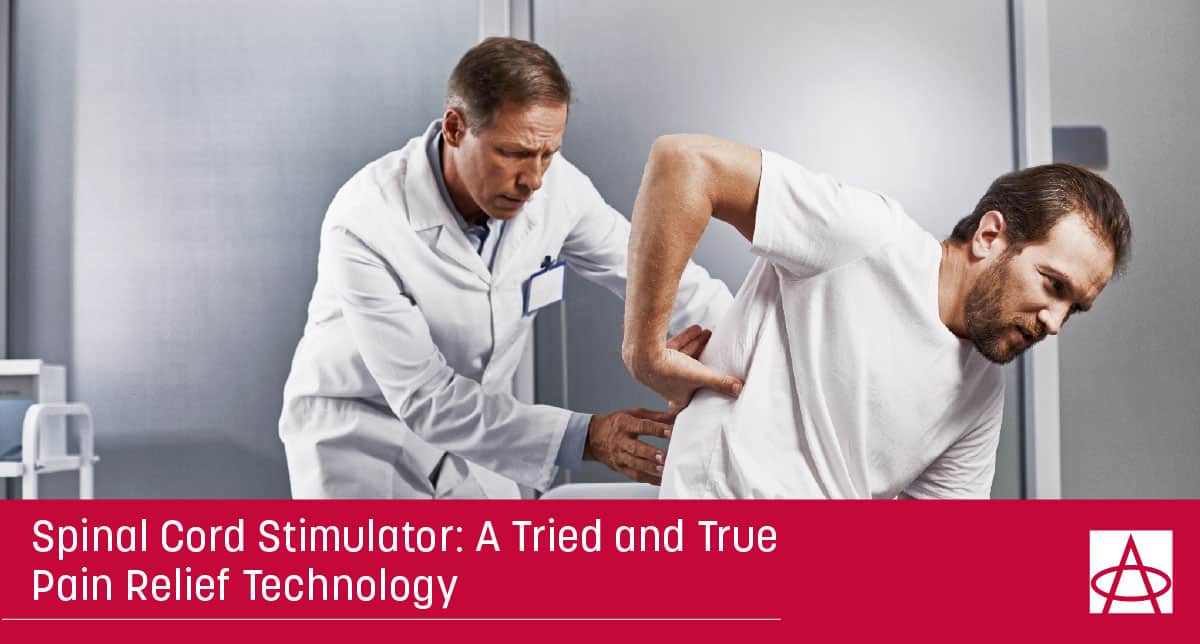How to Manage Your Chronic Pain at Home
By Advanced Pain Care There are many reasons for chronic back pain. Sometimes, because the pain has prolonged over time and has affected the area for so long, it is hard to properly address it without seeking medical attention. Usually, chronic pain comes as a response to an injury incurred or from a structural problem at birth, i.e. from a disease like scoliosis. If the pain derives from an injury, a simple sprain or strain from overexertion could run you the risk of chronic pain; or from something more distressing, like a fall or a motor vehicle accident. You could also develop
What Triggers Migraines and How Can You Manage Them?
By Advanced Pain Care If you’ve been experiencing migraines more than usual lately, you’re not alone. Seasonal changes (yes, even here in mild and pleasant Texas) are one of the many triggers of this impairing head pain. What makes migraines different from regular headaches is the associated symptoms that go along with them. If other ailments like nausea, sensitivity to lights or noise, or dizziness accompany your throbbing head, there’s a good chance you’re suffering from a migraine. The good news is that there are lifestyle changes you can make to reduce the chances of encountering this unpleasant affair. What Does a
What Does Meniscus Pain Feel Like And How Can You Get Relief?
By Advanced Pain Care Meniscus pain is typically sharp and stabbing, and can have an audible or palpable popping or clicking, or even a mechanical locking sensation where the knee literally cannot be moved (called “painful mechanical symptoms”). Meniscus tear pain can make even the most simple tasks feel unbearable, like rolling over in bed, getting out of a chair or car seat, twisting, or squatting and kneeling or crossing the leg. Anyone can experience pain from a meniscus tear, and unfortunately for us all, meniscus tears become more common as we get older. Thankfully, Advanced Pain Care is well-versed in
All About Fibromyalgia Pain
By Samuel B. Pegram, M.D. Sometimes, pain isn’t because of an injury. It’s because of your brain. Fibromyalgia pain is an interesting concept, because it’s actually a neurological issue. Years ago when doctors started learning about fibromyalgia, we weren’t aware that it was a neurological problem. Because people had pain in areas that weren’t their joints, doctors thought it was a muscular problem. And in fact, many years ago, we would actually go about biopsying some areas of tenderness, looking for inflammatory cells that weren’t actually there. Fibromyalgia was called fibritis for a while, because doctors thought it was inflammatory. But eventually, we came
The APC Difference: Our Multidisciplinary Approach to Patient Care
By Dr. Mark Malone, Founder of Advanced Pain Care When you walk through the doors at Advanced Pain Care, I want you to feel happy and optimistic. Everyone at APC brings a positive attitude to their work, and we want you to feel the same way we do. I know you’re in some form of pain when you visit us. I know that’s an unpleasant experience. Feeling happy and optimistic isn’t a typical feeling for most chronic pain patients. That’s why I created Advanced Pain Care: I saw a need for comprehensive and compassionate patient care. And my own personal experience as a pain
Myth Buster: Do Painkillers Reduce Your Pain Threshold?
By Anthony Perardi, Chief Physician Assistant At APC, we take great care to be sure we’re setting our patients up for long-term pain relief with advanced pain management. Medications can be an important part of addressing chronic pain, but we know you have questions about painkillers – and for good reason. Data provided by the Centers for Disease Control and Prevention shows that, between 2000 and 2017, prescription opioid drug users had a higher overdose mortality rate than heroin users. The overdose death rates for both those populations dropped in 2018 (though synthetic opioid overdose deaths increased). The good news is that the
Spinal Cord Stimulator: A Tried and True Pain Relief Technology
By Advanced Pain Care The spinal cord stimulator may sound like a newer technology, but it’s actually been around for many years. The first documented use was in 1967. Like many technologies of that era, the spinal cord stimulator has improved dramatically over the years — even within the past three years. It continues to be a safe, effective treatment for helping patients with chronic pain syndromes. Here are some answers to your most frequently asked questions about the spinal cord stimulator. How Does the Spinal Cord Stimulator Work? The spinal cord stimulator blocks pain signals that are sent to your brain. It’s placed in
How Veteran, Chester Jones, Achieved Life-Changing Pain Relief with APC
By Chester Jones, APC Patient Ambassador I want to help you achieve lasting pain relief and the ability to stop using painkillers. Those are my goals for you. Those were my own goals and Advanced Pain Care got me there. But as a veteran, it was a long journey for me. I spent years trying so many things that didn’t work — I felt like a pincushion. APC gave me the right kind of pain care and now I am basically painkiller free. Regardless of whether you’re a veteran or not, I want to help you find lasting relief as soon as possible. Why Pain
How Crystal Found Relief From Chronic Pain
By Allison Turner, DNP, FNP-C We understand your frustration. Enduring complicated medical procedures, taking multiple medications, only to experience minimal pain relief. You may think living in pain is just life. For Crystal, a 52-year-old with chronic low back pain and knee pain in the setting of rheumatoid arthritis, that’s the conclusion she was approaching. Even with a 12-year-old spinal cord stimulator for her back pain, multiple medications, and recent knee replacement surgery, Crystal only had moderate pain improvement. Adding to her frustration was pressure from medical professionals to continue trying invasive surgical procedures. She was also faced with the revelation that she might require
Self-Care Tips for Managing Chronic Pain at Home
Discover how you can begin managing chronic pain with easy at-home self-care tips from Advanced Pain Care’s Dr. Adam Spjute.











